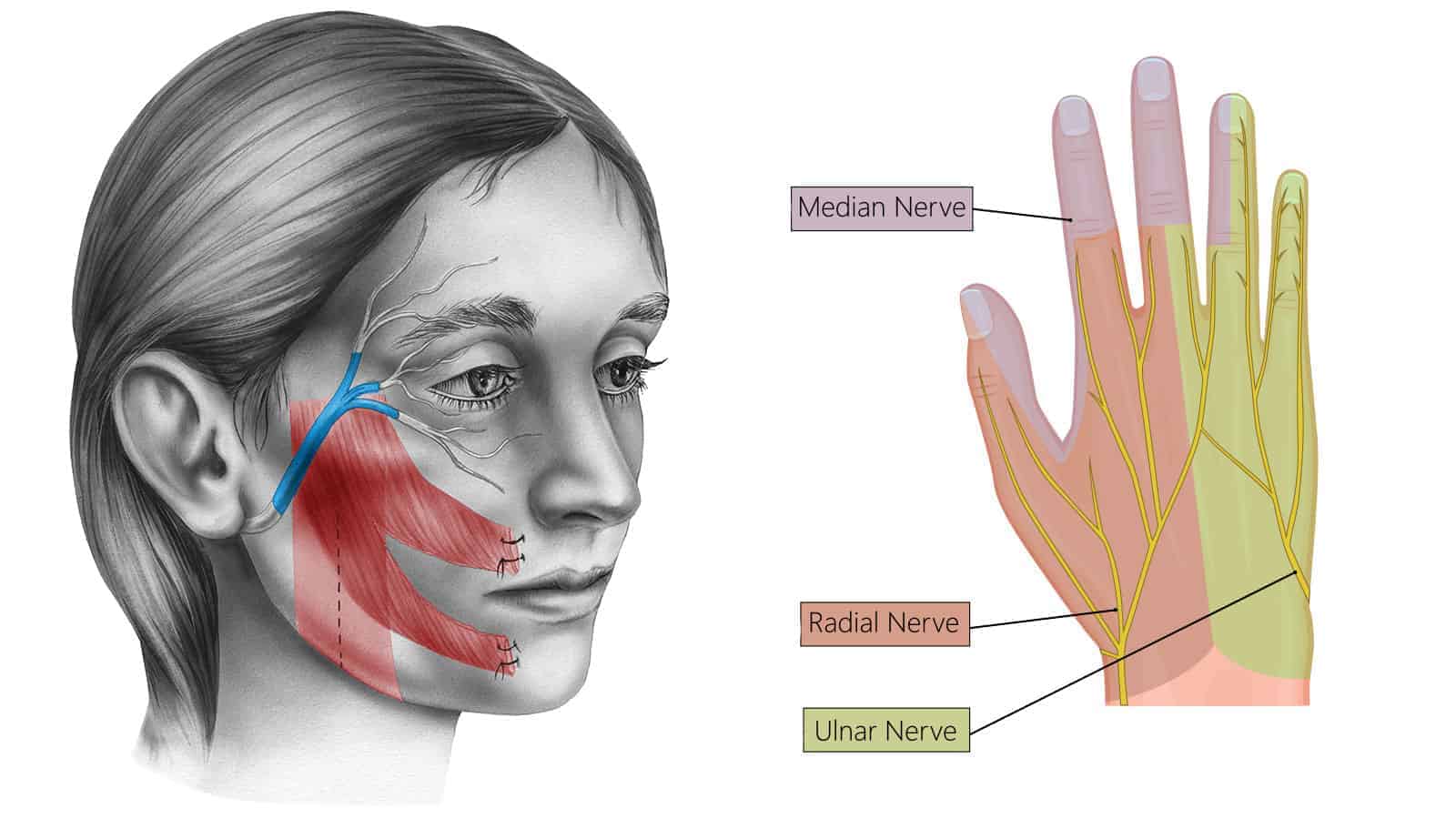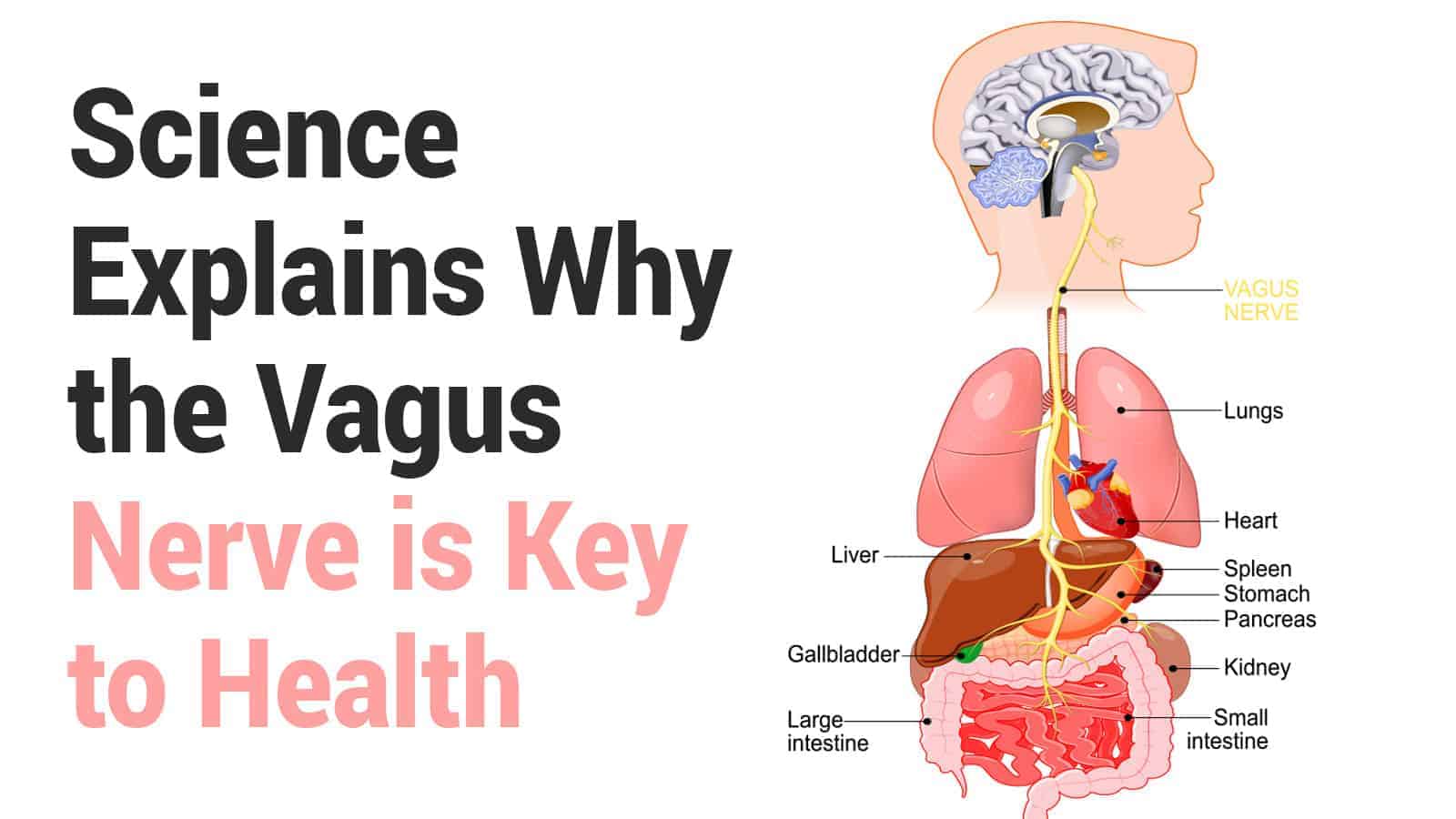Nerve damage can be a very serious problem, especially considering your nerves connects to almost everything action you make. Recognizing signs of potential nerve damage early is extremely important. You will be able to catch more serious issues from progressing.
More importantly, you can deal with the cause of the nerve pain more efficiently when you catch it in its earliest stages. You won’t need to live with the pain once you resolve it. Don’t ignore these uncomfortable red flags. Ignoring nerve damage can lead to long-term consequences.
Three Types of Nerves in the Human Body
Your nerves are like an electrical wire, sending impulses from your brain to all your organs and muscles. These currents send messages that control everything in your body from physical ability to pick up a pencil to blinking your eyes to telling your heart to beat in rhythm.
And when you interrupt that circuitry, it causes your body to “misfire.” These warning signs alert you that something’s gone awry–it’s time to see the doctor.
According to the University of Chicago, we have three types of nerves in the human body:
- Autonomic Nerves – control involuntary movement and function
- Motor Nerves – control conscious movements and voluntary function
- Sensory Nerves – relay signals from skin and muscles to your brain
Since the three main types of nerves have different functions, your symptoms can help determine what nerves are damaged and even where the problem might lie. There are plenty of signs that you might be suffering from nerve damage. But here are 10 specific symptoms you definitely don’t want to ignore.
10 Signs of Nerve Damage to Never Ignore
1 – Constant Need to Use the Bathroom
While you might not expect it, having to constantly use the bathroom might not actually be a bladder issue. Autonomic nerves control all sorts of functions and processes, including bladder control. While there is some manual control over the bladder function, mostly in the muscles in the external urethral sphincter. These muscles can help close off the urethra and are the muscles activated when you’re trying to hold it in while you run to the bathroom.
All of the other muscles involved in bladder control, however, are involuntary. They rely on pressure triggered sensory nerves sending signals to the brain and other muscles to activate the contraction of the bladder. If these autonomic nerves that control the muscles around the bladder are damaged, they could be sending signals to control the bladder when there really is no need, giving you that constant feeling of having to run to the bathroom.
2 – Constipation
Much like bladder control issues, chronic constipation could be due to nerve damage. The peristaltic (wavelike) contractions of the intestinal tract are all controlled by the autonomic nervous system. While you can activate the abdominal muscles to help move things along and push, or tighten the anal sphincter manually to help hold things up if you’re forced to wait, most of the process is automatic.
If you have nerve damage in the nerves which control the intestinal tract, it could lead to a backup and blockages of the intestines, causing chronic constipation. If you have chronic constipation and things like laxatives or other common treatments don’t do anything to help, it may be time to see your doctor for more tests.
3 – Numbness, tingling, or burning sensations
Sensory neurons are responsible for sending touch signals to the brain. This includes things like your sense of touch from your hands and fingers, pressure sensations against your body, and the pain response. As expected, if you have nerve damage in your sensory neurons, these signals can get muddled.
If you feel constant numbness or a tingling sensation in your fingers or feet (like when you get pins and needles) it could be a sign of nerve damage. In more extreme cases, this damage can lead to nerve pain as the damage causes the nerve to trigger a pain response. This chronic pain can be difficult to deal with, as it’s coming right from the nerve. This pain can also get fairly intense depending on the severity and location of the damage.
4 – You Don’t Notice Injuries And Get Hurt More Often
While many people pride themselves on their high pain tolerance, having no sense of pain could be a sign of nerve issues. While one symptom of damage is numbness or tingling and constant pain, another issue could be the exact opposite.
Having no feeling at all, or no sense of pain in an area can mean you have some damage. Nerve pain and the general pain response, while unpleasant, is an essential function. It lets our bodies know that we are in danger, and allows the body to react accordingly.
To show just how important this response is, let’s take the scenario of touching a hot stove. When your hand touches a hot stove, your body senses the pain and jerks your hand away, preventing more damage.
Without that pain response, there is nothing alerting you to move your hand. This could lead to severe burns and even more severe tissue damage. If you have no pain sensation in an area, it might be a good idea to consult your doctor.
5 – You Are Exceptionally Clumsy or Have Balance Issues
Proprioception is the body’s mechanism of keeping itself balanced aware of its own movement for the sake of coordinated movement. It involves a lot of fine muscle movements, most of which are automatic. Your muscles relay information to the brain regarding pressure, weight, and alignment, and the brain sends signals for the muscles accordingly. Nervous system problems with any of the nerves involved in this setup can throw things awry though.
Incorrect signals being sent or improper sensory information can lead to balance issues, a lack of coordination, or even vertigo if the signals are disjointed enough. If you ever feel like you just can’t seem to move the way you want to, or you’re having more trouble keeping your balance than you used to, it might be time to see a doctor.
6 – It’s Difficult or Impossible to Move Parts of Your Body
Sometimes difficulty moving is normal, be it from stiff joints, sore muscles, or old age and arthritis pains. Other times, though, it could be a sign of nerve problems. Motor neurons send signals that trigger the voluntary flexing of muscles. If something goes wrong with the motor pathways, the muscles won’t move the way they should.
This can lead to a lack of motor control, some parts of your body being more difficult to move, or even paralysis of certain joints and parts of the body if the damage is severe enough.
7 – Speech Problems
The sudden onset of speech problems like slurring and an inability to speak coherently is a major red flag that something is wrong. This can be caused by a variety of problems. One cause is a sudden lack of motor control in the facial muscles. This also usually causes drooping of the facial muscles as well and is one of the primary signs of a stroke. Another cause is damage to either the Broca or Wernicke’s area of the brain. These two areas are essential in the production and comprehension of speech respectively.
8 – Pain in Just One Leg
If you feel pain running down one of your legs, specifically originating from around the lower back, this could be a sign of sciatica. Sciatica is caused by damage or pinching of the sciatic nerve, which runs from the lower back all the way down the legs. This can stem from other conditions like diabetes or from a herniated disk in the spine putting direct pressure on the nerve.
9 – Intense Intermittent Headaches
We’re not talking about migraines with this one, but more short and intense headaches that feel almost like electric shocks. These headaches can be part of a condition called occipital neuralgia, which is caused by pinching of a nerve in the neck. Treatment is usually fairly simple and non-invasive, getting nerve block injections to prevent it from sending pain signals up the spine. There could be other neurological reasons for the intense headaches as well, and chronic pressure headaches shouldn’t be ignored either.
10 – Severe Muscle Twitching
While sometimes muscle twitching can simply be a sign that your muscles are overworked and spasming due to exhaustion, other times it might be a sign of nerve problems. If your muscles frequently spasm for seemingly no reason, it’s time to see a doctor.
These spasms could be the onset of a neurological condition like Parkinson’s, which results from nerve cells in your brain becoming damaged. You could also have Multiple Sclerosis or a variety of other potential nervous system conditions based on your symptoms. Of course, some are more serious than others.
Final Thoughts on Learning the Signs of Nerve Damage
Nerve damage can be a serious issue depending on the cause. Shooting pains and weakness could simply be the result of a pinched nerve. However, other issues could be more serious. If you’re suffering any of the symptoms above its recommended that you speak with your doctor and have testing done.
Rare or intermittent cases of some symptoms like constipation might not be troubling. However, you must address anything related to speech or balance right away. Your doctor might also notice problems during routine exams, so regular physicals can help spot problems early. The important thing is to be aware of your own health. Moreover, if something doesn’t feel right, trust your gut instinct.
So your nerve pain might not seem like much at the moment. But it could be a sign of a serious condition.

















 Community
Community

